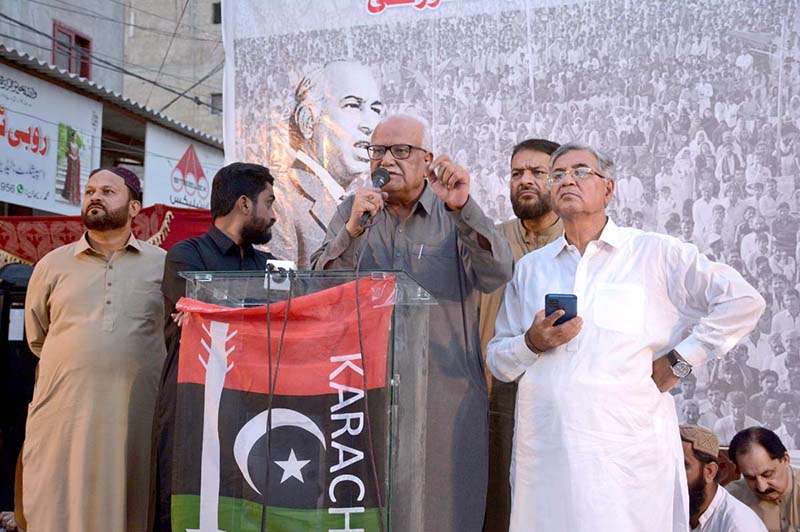BY : BURHANUDDIN MUSTAFA.
Karachi : In the wake of the ongoing Israel-Palestine conflict, Pakistan has reaffirmed its longstanding
support for the Palestinian cause while carefully navigating the complex geopolitical landscape of the Middle East. As the crisis unfolds, Pakistan's stance reflects a delicate balance between historical commitments, domestic pressures, and international considerations. Foreign Ministry spokesperson Mumtaz Zahra Baloch stated, "Pakistan will support all efforts to prevent a war in the Middle East," emphasizing the country's commitment to regional stability. This statement comes as fears grow of a wider conflict involving Israel and Iran, with Pakistan positioning itself as a voice for de-escalation. Pakistan's support for Palestine has been consistent but measured. The country has sent multiple consignments of humanitarian aid to Gaza and offered scholarships to Palestinian students. Prime Minister Shehbaz Sharif designated October 7, 2024, as 'Palestine Solidarity Day,' demonstrating Pakistan's symbolic backing of the Palestinian people.
In a significant diplomatic move, Pakistan recently spearheaded a non-binding resolution at the UN Human Rights Council, calling for an end to the sale, transfer, and diversion of military aid to Israel. This action underscores Pakistan's efforts to leverage international forums to advocate for the Palestinian cause.
However, Pakistan's involvement remains primarily diplomatic. Despite being the second-largest
Muslim state and the only Muslim nuclear power, there are no indications of direct military involvement in the conflict. The country's foreign policy is shaped by multiple factors, including its economic challenges and the need to maintain relationships with Western allies and Gulf partners. Pakistan continues to advocate for a two-state solution, calling for a viable, sovereign, and contiguous Palestinian state based on pre-1967 borders, with Jerusalem as its capital. This position aligns with longstanding UN and OIC resolutions on the matter.
The conflict has sparked widespread pro-Palestinian protests across Pakistan, reflecting strong public sentiment on the issue. While these demonstrations allow the government to redirect domestic frustrations, they also present challenges in balancing public opinion with diplomatic necessities. As the situation in the Middle East remains volatile, Pakistan's role as a significant Muslim state with nuclear capabilities places it in a unique position. The country's actions and statements are closely watched by regional and global powers alike.
Pakistan's Foreign Minister Ishaq Dar recently attended an emergency meeting of the Organization of Islamic Cooperation (OIC) in Saudi Arabia, where he condemned Israel's actions in Gaza and called for a ceasefire and improved access for humanitarian aid. This engagement demonstrates Pakistan's active participation in regional diplomatic efforts to address the crisis. While Pakistan maintains close ties with Iran, having hosted Iranian President Ebrahim Raisi in April 2024, it has not aligned itself with Iran's more confrontational stance towards Israel. ?This balanced approach suggests that Pakistan is likely to continue its diplomatic support for Palestine without escalating tensions further.? As the conflict persists, Pakistan's role in the region remains significant. The country's actions in the coming weeks and months will be crucial in shaping the international response to the crisis and potentially influencing the path towards peace in the Middle East.



















